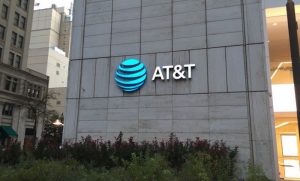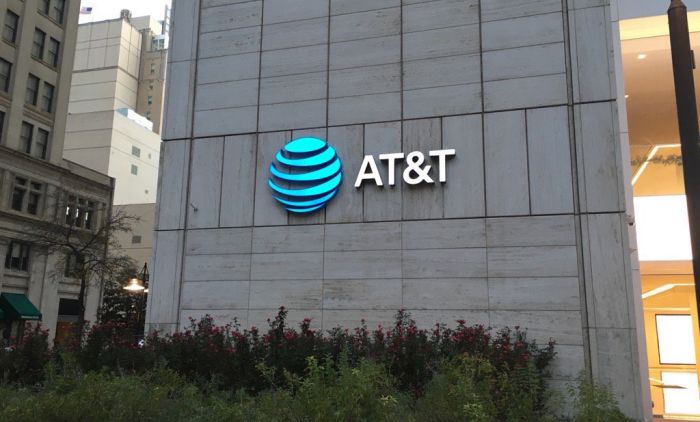If the merging parties are true to their many tough public statements, and they stick the litigation out long-term, the odds are not bad that the DOJ could win its case against the AT&T-Time Warner deal, says antitrust expert Chris Sagers.

The antitrust news just never ceases to amaze anymore. After a pretty remarkable couple of years of renewed interest, we then had to recalibrate all predictions of what might happen after the presidential election of 2016. Prognostications since then have twisted and changed continually, with what seem like surprising new developments weekly.
Some at first held cautious hope that President Trump would be some sort of old-school populist trust-buster. But to most, and definitely to me, it seemed that his antitrust regime would be pretty dormant. Aside from an aggressively anti-interventionist domestic agenda generally, at odds with the president’s campaign-trail populism, the White House also seemed deeply uninterested in the day-to-day administration of most actual policies. Among other things, the administration has taken astoundingly long to appoint its leadership in antitrust as in the rest of the executive branch.
But then came the past three weeks. Amid speculation over the Justice Department’s reaction to the pending merger of AT&T and Time Warner, the president’s very newly confirmed antitrust chief Makan Delrahim first gave a tough-talking speech more or less denouncing behavioral merger remedies, and though he didn’t mention AT&T, it was taken to signal demands for likely deal-killing divestitures in that deal instead. Then explosive news broke quoting unnamed sources that Delrahim had personally demanded divestiture only of CNN, with frantic speculation and outrage that it might be a political reprisal for negative coverage of the Trump administration. Days later Delrahim gave another flat-out barn-burner, again attacking behavioral remedies and in general talking very tough. And yesterday, the by-then not unexpected bomb dropped of a blockbuster complaint to block the deal, the first federal challenge to a vertical merger in almost forty years, and what may ripen to become one of the most important litigated merger challenges in living memory.
In the wake of these events, there seem to be two big questions: what will happen in this remarkable suit, and what the fact of it might portend for the future of antitrust in the Trump administration. Now that a complaint is public, the first question seems easier. The case seems strong, and if the merging parties are true to their many tough public statements, and they stick the litigation out long-term, the odds are not bad that the DOJ could win.
Why this is a good lawsuit

A narrative frequently repeated in the media, abetted in part by antitrust experts but also aggressively pushed by the merging parties in this deal, is that a challenge to it was unlikely, because it is vertical. AT&T’s public communications more or less insisted that it couldn’t be challenged, intoning that no vertical merger “had been blocked in over 40 years.”
But that was all quite misleading. While the antitrust community definitely lacks consensus on vertical merger policy, and it is true that the government has not sued to block a merger outright in some decades, most people across the antitrust spectrum agree that some of them should be taken seriously. Moreover, the federal agencies actually condition vertical mergers fairly often, and, by far most importantly, Obama’s DOJ took significant action, essentially the same as the action here, against the merger that is this one’s closest analogue: the 2011 acquisition by Comcast of NBC Universal.
Like with Comcast-NBCU, the theory of harm in this case is very straightforward. Its lynchpin is that AT&T already owns DirectTV Now, a player in the growing, competitively significant market for streaming video, and that if it combined DirectTV Now with ownership of Time Warner’s content assets, the merged firm would find it profitable to raise the price of those assets to competing video distributors. The argument is built on the “bargaining theory” framework pioneered by economist Bill Rogerson and others, and forcefully applied in Comcast-NBCU by Rogerson before the Federal Communications Commission. Interestingly enough, when the Comcast-NBCU merger was pending, the theory on which that deal was conditioned was actually compellingly laid out in comments filed by none other than DirectTV in opposition to that deal. They read now like they’re more or less describing AT&T’s acquisition of Time Warner.
It seems to matter to the DOJ as well that this deal is so breathtakingly big. As observed in its press release announcing the complaint, this would be one of the biggest mergers in history, worth three times as much as Comcast-NBCU.
Incidentally, requiring divestiture, rather than the conduct remedies imposed on vertical mergers in the past—as according to press accounts was demanded by DOJ in pre-suit negotiations—is consistent with a growing, bipartisan view that conduct remedies are problematic.
Anyway, it also probably bodes well for the government that the case has already been assigned to Judge Richard Leon of the District of Columbia, who also presided over Tunney Act proceedings in Comcast-NBCU. In itself that means very little, as DOJ’s antitrust consent decrees are essentially never rejected, but Judge Leon’s opinion entering the decree was modestly strongly worded and he actually ordered that the government’s requested relief be toughened up in a few respects. He wrote that the requested time period and limited appeal procedures for disadvantaged streaming-video providers would be inadequate to protect the public. In other words, he believed in that merger enough that he ordered even tougher protections than the government wanted, and one imagines he’ll be at least open to the very similar theory of liability asserted here.
What does this mean for antitrust?
A whole different question is how to read this new tea leaf along with the others, and try to figure out what will be coming during the next three years of Trump antitrust.
In my mind, the question for now mostly boils down to how much weight can be given to the media narrative that this lawsuit was politically motivated. But to the extent that some outlets seem to buy it in that form, it seemed to betray a media a little too eager to believe bad things about Donald Trump, and that may possibly have been played a bit by the AT&T publicity machine for its own purposes.
Admittedly, the story was striking. Unnamed sources told the New York Times, LA Times, Reuters, and other outlets that DOJ wants the merging parties either to divest Time Warner’s Turner Broadcasting assets or AT&T’s DirectTV Now streaming video business. Rather chillingly, “three people with direct knowledge of the negotiations” told the Financial Times that the Justice proposal is “all about CNN,” the agency having made clear that if CNN is sold the deal will go through. And crucially, it wasn’t just the merging parties telling this story to the press. People “from both companies and the Justice Department” told the New York Times that divesting CNN was “a central component of the dispute.” Moreover, there was some non-trivial reason to fear White House–driven political conspiracy. The president’s hatred for CNN is omnipresent, and he not only has said he would block the deal, his own top advisors reportedly recommended a CNN sell-off as punishment for its reporting.
It is admittedly surprising that this merger would be the administration’s first big antitrust challenge, even if it’s true that it intends to be tough on antitrust. While the agencies have sometimes taken action against vertical mergers, particularly in communications, they’ve let many of them go, and the action they’ve taken before has rarely been so dealbreakingly significant. Those actions, it seems relevant to me, have mostly been taken by Democratic administrations. The Reagan and Bush administrations, by contrast, were thought by many to have tried to kill vertical enforcement more or less completely.
But the reason a story of a White House-directed political conspiracy was so surprising—and the reason we therefore should approach it with quite a lot of skepticism—is that it would be the biggest scandal in antitrust since Watergate, when Richard Nixon interfered in merger investigations for political gain. Accordingly, it requires serious aspersions against well-regarded professionals. While the president himself and his attorney general may be capable of such things, putting this scheme into play would require not just their fiat. It would require complicity at least of the Justice Department’s antitrust chief, Makan Delrahim, and at least some of his front office staff. All of them are veteran, well-regarded antitrust professionals with comfortable lifestyles to which to return if they were ordered to tarnish their own reputations.
And moreover, some caution is warranted about the source of the allegations. They are all unidentified, and there came to be a spat between the agency and AT&T over who said what. A “source within DOJ” told Fox News and CNN Money that the offer to sell CNN was actually made by AT&T, and another told Reuters that no definitive demands had been made. AT&T’s CEO publicly responded with a strong denial. However it all may be, there seems the risk that AT&T itself, a savvy firm well-advised by public relations professionals, generated the controversy to frustrate what might be meaningful DOJ remedies.
On the other hand, there is still reason to doubt just yet that Makan Delrahim is the change we have been waiting for. Even if the strong-form conspiracy theory was false, indeed even if neither the White House nor Attorney General Jeff Sessions had any input in the decision at all, it could be “political” in the sense that the Antitrust Division front office authorized the suit to please the White House. That seems perfectly plausible, notwithstanding that the challenge seems very likely to have been recommended by career staff and developed by them over a long course of deliberation (since the building of this case would have been laborious and was unlikely to have been completed just in the weeks since Delrahim’s confirmation).
If this really was mainly a sop to the White House, that could be very regrettable. Among other things, this litigation will potentially eat up a lot of resources, if AT&T decides to tough it out for the long haul, and that may cause the Division to choose not to pursue other very big, very harmful, legally problematic deals.
And there is really just as much indication that the Division is not all that serious about enforcement. I think the only certain things about Mr. Delrahim so far are that he is willing to say things a bit more bombastic in public than agency officials typically do. And those striking comments also have their own indications that AT&T/Time Warner will be the exception and not the rule. One of those striking recent speeches, for example, managed to combine tough enforcement talk with a whole string of dog-whistle code words that might signal exceptional restraint in enforcement, including broad and aggressive preference for “deregulation” and “economic liberty.”
For now, for what it is worth, I will remain hopeful. The AT&T-Time Warner case will likely be litigated at some length before a judge fairly well disposed to the theory of liability, and I think the case being fairly strong, it has not a bad chance of reaching final judgment on the merits in the government’s favor. It would then be appealed to a D.C. Circuit that for now seems to lean rather to the center-left in antitrust matters, its most recent appointments having been made by President Obama.
Having told a lot of reporters over the past year that I think we are in for essentially no antitrust enforcement under this administration, I am provisionally preparing myself to admit that I was quite wrong. It seems possible that antitrust during the next three years will be some of the most interesting and important enforcement in many years. But I’m still not holding my breath.
Chris Sagers is the James A. Thomas Distinguished Professor of Law at Cleveland State University, where he teaches antitrust and other courses. He is author of Apple, Antitrust and Irony, forthcoming from Harvard University Press, and co-author of Sullivan, Grimes & Sagers, Antitrust: An Integrated Handbook
Disclaimer: The ProMarket blog is dedicated to discussing how competition tends to be subverted by special interests. The posts represent the opinions of their writers, not those of the University of Chicago, the Booth School of Business, or its faculty. For more information, please visit ProMarket Blog Policy.






